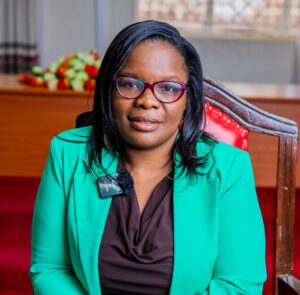The inaugural International Day of Clean Energy was held on 26th January 2024, when the International Renewable Energy Agency was established 15 years ago. It is a significant day for (Central, East, Southern and West) Africa, which has the lowest energy access rates in the world, accounting for only 3 per cent of global energy use. The continent is struggling with some of the worst impacts of climate change caused by fossil fuel use while also at a crucial moment of transition to renewable energy.
At COP 28 held in Dubai last December, parties agreed to triple global renewable power capacity (to 11,000 GW) as one of the measures for ‘deep, rapid and sustained reductions in greenhouse gas emissions in line with 1.5 °C pathways’. The International Energy Agency estimated that renewable power capacity will rise to 4,500GW by the end of this year,
The challenges of divesting or shifting investments from fossil fuels to renewable energy on the continent are structural. The principle of Common But Differentiated Responsibilities and Respective Capabilities places the greater responsibility of divestment on historical polluters (developed countries), who are yet to fulfil their pledges to provide adequate climate finance to avert, minimize and address the impacts of climate change.
Developed nations are industrialized, with specialized economies, from decades of using fossil fuels not just on their own, but through plunder of many developing countries. On the other hand, the African continent, accounting for 4 percent of current emissions and negligible historical emissions, still keeps most of its fossil fuel reserves untouched in line with the Paris Agreement and remains un-industrialized with high debt-to-GDP ratios.
The COP 28 cover decision recognized ‘that transitional fuels can play a role in facilitating the energy transition (the shift from using fossil fuels to using renewable energy) while ensuring energy security’. This is a contentious issue as transitional fuels are fossil fuels, like liquefied natural gas, which release greenhouse gas emissions responsible for climate change. However, unlike historical polluters and rapidly industrializing economies whose greenhouse gas emissions must be capped and reduced, at 4pc of emissions per year, experts say that Africa still has a carbon budget (a measure of how much carbon dioxide – a greenhouse gas – can be released relative to emissions in other parts of the world while limiting GHG emissions) and that there should be room for candid discussions about this.
Financing energy access through the grid (main government-run power lines) may take time to be possible through renewables, given the low financial flows to the continent; thus, there is a call for decentralized or off-grid energy solutions. Financial flows to renewable energy on the continent stood at less than 2 percent between 2000 and 2020, while in comparison, investment per capita in Europe was 41 times this amount, and 57 more in North America in the same period.
Africa requires USD 200 billion up to 2030 to meet all energy-related SDGs, and even then, at the current pace, at least 560 million people from Sub-Saharan Africa will still need access. This poses a great challenge, yet increasing access to energy will enable development and tackle poverty in Africa.
Why a Clean Energy Day necessary?
The Clean Energy Day casts light on an issue of importance to those at the forefront of the climate crisis. When climate-induced disasters strike, many countries lose access to energy, like the case of Malawi in 2023, where there was no power for over a month after Cyclone Freddy. Hospitals, schools, and other public amenities were forced to rely on alternative forms of energy in a country whose energy access is estimated to be only 12 percent.
When climate disasters destroy electricity and other infrastructure, access to those who already have it is diminished, directly affecting outcomes in education, health, nutrition and many others, contributing to the growing debt burden and, in the long run, affecting development. Rebuilding takes time and requires both finances and energy. After such disasters, energy will cost much more and become inaccessible to those who need it the most.
At the heart of planning for renewable energy systems should be an understanding that those at the margins – those who require access to basic services and are most often underserved – should be prioritized through the provision of decentralized renewable energy. We must identify and challenge existing unjust systems that prioritize ‘big energy’, often leaving the historically marginalized without access to accessible and reliable energy services.
The just energy transition provides an opportunity for systems change. The ultimate goal must be to provide clean energy for all Africans that is affordable, reliable and accessible, that meets their needs and whose quality and reliability can be measured. Inclusion and meaningful involvement of women, girls, youth, Indigenous Peoples and the underserved in making and delivering policies, establishing new inclusive systems and documenting energy usage for greater measurement are all critical to leave no one behind.
 Anne Songole is a climate and energy justice advocate whose feminism is anchored on ecofeminist ideals and principles that frame emancipation of the environment and that of women and the most vulnerable as similar struggles with similar outcomes. She has experience in social service provision, policy development, energy and climate justice advocacy across Africa.
Anne Songole is a climate and energy justice advocate whose feminism is anchored on ecofeminist ideals and principles that frame emancipation of the environment and that of women and the most vulnerable as similar struggles with similar outcomes. She has experience in social service provision, policy development, energy and climate justice advocacy across Africa.
